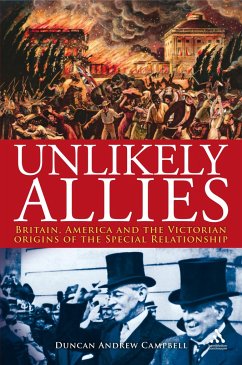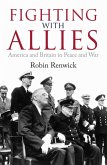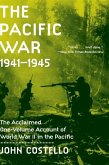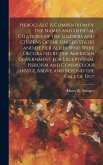When people speak of the special relationship between the two English-speaking peoples on either side of the Atlantic, they are talking of a phenomenon not much older than Britain's 1904 entente cordial with France. The very term 'English-speaking peoples' most probably has no earlier pedigree than William Gladstone. For much of the nineteenth-century, Britain and the United States were imperial rivals in the scramble for North America, and their often difficult relationship directly reflected that reality. That these two nations became friends and allies was never a foregone conclusion until surprisingly late in the century and the rapprochement between them only was only cemented by the First World War. At the same time, the fact the United States was a former colony and that they therefore shared a common language meant that communication between the two nations differed to that between Britain and its European rivals - something Otto Von Bismarck called the most important fact of the nineteenth century. Starting with the War of 1812 when the United States and Britain found themselves on opposite sides, continuing through prominent and obscure Britons' and Americans' views of each other, the economic and migrant links between the nations, their difficult diplomatic relationship, their later developing friendship and increasing cultural and economic ties and concluding with the First World War, this work describes and analyses the often turbulent and surprising relationship between Britain and the United States in the nineteenth century.
Hinweis: Dieser Artikel kann nur an eine deutsche Lieferadresse ausgeliefert werden.
Hinweis: Dieser Artikel kann nur an eine deutsche Lieferadresse ausgeliefert werden.








